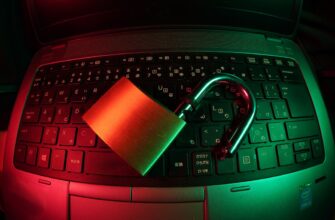What Are SOL Airdrops and Why Should You Care?
SOL airdrops are free distributions of new tokens to active participants in the Solana ecosystem, designed to reward early adopters, boost decentralization, and fuel community growth. With Solana’s high-speed, low-cost blockchain attracting innovative projects, legitimate airdrops offer exciting opportunities to earn crypto—but only if you navigate them safely. This guide cuts through the noise, revealing proven strategies to qualify for real SOL airdrops while avoiding pervasive scams.
Why Projects Launch Legitimate SOL Airdrops
Understanding why teams distribute free tokens helps identify genuine opportunities:
- Community Building: Reward loyal users and attract new members.
- Decentralization: Distribute tokens widely to prevent whale dominance.
- Marketing: Generate buzz for new protocols or NFT collections.
- Governance: Empower token holders to vote on project decisions.
Step-by-Step: How to Qualify for Legitimate SOL Airdrops
Follow these actionable steps to maximize your eligibility:
- Set Up a Secure Solana Wallet
Download trusted wallets like Phantom or Solflare. Never share your seed phrase, and enable all security features. - Fund Your Wallet with SOL
Buy SOL from exchanges (e.g., Coinbase, Binance) and transfer it to your wallet. You’ll need SOL for transaction fees (often < $0.01). - Actively Engage with Solana Ecosystem
- Use top DeFi apps: Swap tokens on Raydium or Orca.
- Stake SOL: Delegate to validators via Marinade Finance or Lido.
- Explore NFT marketplaces: Trade on Magic Eden or Tensor.
- Participate in governance: Vote via Realms for DAO proposals.
- Monitor Official Project Channels
Follow Solana projects on Twitter, Discord, and GitHub. Turn on notifications for airdrop announcements. - Complete Specific Tasks (If Required)
Some airdrops require actions like retweeting, joining Discord, or testing beta apps—always verify links via official websites. - Stay Persistent and Patient
Airdrops often reward sustained activity. Track your engagement using tools like Step Finance.
Red Flags: How to Spot and Avoid SOL Airdrop Scams
Protect your assets with these critical precautions:
- Never share private keys or seed phrases. Legit projects won’t ask for them.
- Verify URLs: Check for misspellings (e.g., “solona.com”) and SSL certificates.
- Avoid “too good to be true” offers: Free SOL giveaways or guaranteed returns are scams.
- Use hardware wallets: Store large holdings offline via Ledger or Trezor.
SOL Airdrop FAQ: Your Top Questions Answered
Q: Do I need to hold SOL to qualify for airdrops?
A: Not always, but interacting with DeFi/NFTs requires minimal SOL for gas fees. Holding SOL may qualify you for certain ecosystem-wide drops.
Q: How long does it take to receive an airdrop?
A: Varies by project—some distribute instantly, others months after eligibility checks. Follow project updates for timelines.
Q: Are SOL airdrops taxable?
A: Yes, in most countries. Record airdrop values at receipt; consult a crypto tax expert.
Q: Can I use multiple wallets to increase chances?
A: Sybil attacks (fake accounts) are often detected and banned. Focus on genuine activity with one main wallet.
Q: Where’s the best place to find upcoming SOL airdrops?
A: Track official Solana forums, CoinGecko’s airdrop section, and trusted crypto news sites like Decrypt.
Conclusion: Earn Smart, Stay Secure
Qualifying for legitimate SOL airdrops demands proactive engagement with the Solana ecosystem—not luck. By consistently using DeFi protocols, staking SOL, and verifying every opportunity, you position yourself for genuine rewards. Remember: If an airdrop asks for sensitive data or upfront payment, it’s a scam. Prioritize security, contribute authentically, and transform your Solana activity into tangible gains.








